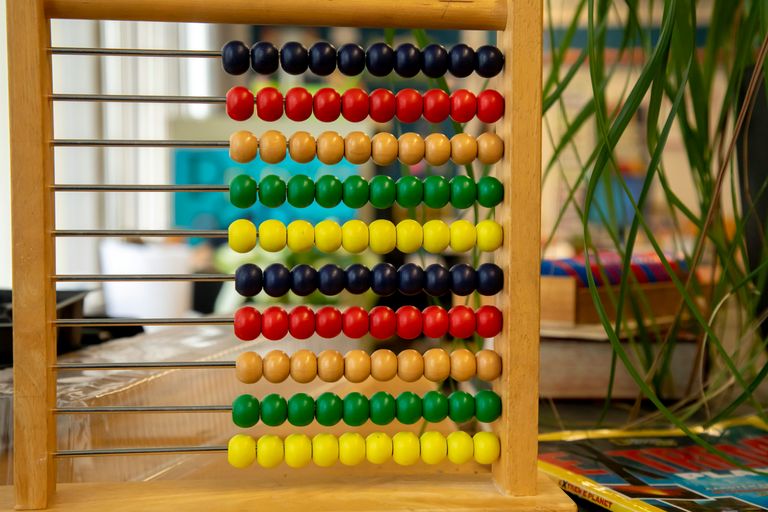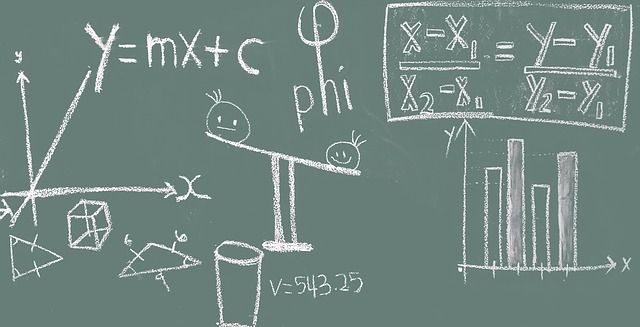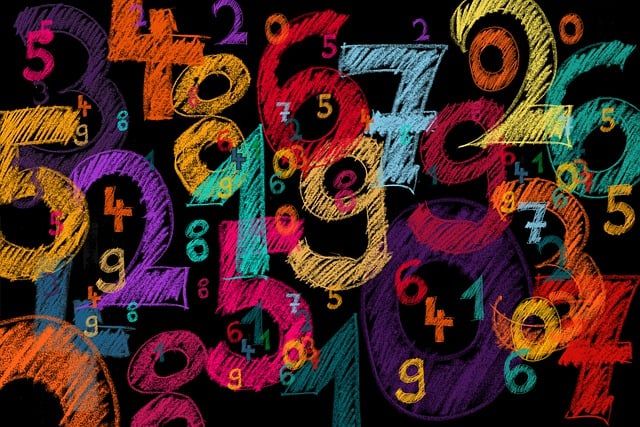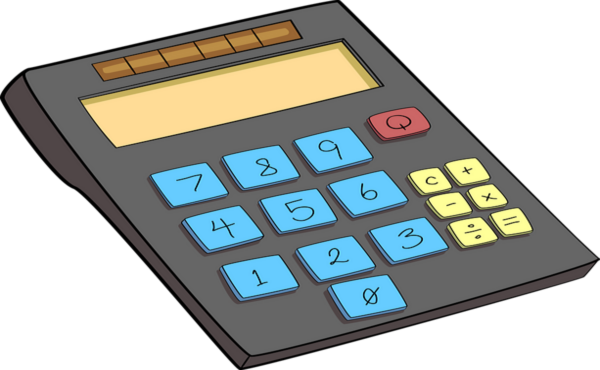
Unsplash

Martes, 17 de diciembre, 2024.
Mi sobrino vino a visitarme un rato a la oficina. Obviamente no vino solo, sino que mi mamá lo trajo porque quería verme un rato, ya que está pasando con nosotros en casa hasta que mi hermana y mi cuñado regresen de Perú. Noté a mi sobrino muy ansioso y preocupado y cuando le pregunté qué era lo que le pasaba, me dijo que no entendía matemáticas por más que su profesora hasta les pusiera a cantar en clases una melodía que habla de los númmeros.
Le dije que cambie esa carita de tristeza porque su abuela y yo lo ayudaríamos a entender, lo abracé y le prometí que las cosas cambiarían, pero que tenía que poner de parte para que no se hiciera un lío al utilizar el ábaco que su maestra les recomendó ocupar. Cuando se fueron y cerré la puerta de mi oficina, comprendí mucho en esa frustración infantil porque igual que a mi sobrino le pasa ahora, a mí también me pasaba lo mismo a su edad y creo que no somos los únicos en el mundo que en la niñez no nos gustaba las matemáticas. Por lo menos mi sobrino intenta que le agraden un poco, pero en cuanto a mí, la aversión hacia ellas cambió para peor cuando estudiaba en el colegio y todo pasó a la escala y los matices de la Física, el Álgebra, la Trigonometría y la Geometría, en sí, odiaba todo lo que tenía que ver con números y fórmulas abstractas.

Pixabay
Mi desprecio por las Matemáticas y sus ramas llegó a límites estratosféricos cuando casi pierdo un año escolar por bajas calificaciones, entonces, solo entonces, mi mamá comenzó a tomar en serio mi actitud hacia la cátedra y contrató para mí un profesor particular. Podía habérselo dicho a mi papá y así ahorrarse una suma que nada mal le caía en su economía personal, sin embargo, dijo que yo aprendería mejor si era una persona externa la que me enseñaba Matemáticas y sus ramas.
No es que acepté su imposición del todo gustosa, pero ahora, le agradezco porque, si en ese momento mi profesor particular hizo lo imposible ya que que pasé el año escolar sin problemas, las matemáticas y todo lo que implica en sí el mundo de los números, me ha sacado de más de un problema no solo con las cuentas personales, sino también porque mi mente tiene un sentido más amplio a la hora de tomar decisiones, puede que parezca ridículo, pero está comprobado que aquellas ciencias exactas que ponen dificultad en los estudiantes son las que más trabajo cerebral necesario realizan para mantener estables la salud mental y memoria equilibrada.
Mi profesor particular solía decir que las matemáticas y las ciencias exactas nos rodean, aunque no siempre nos demos cuenta porque están en el ritmo constante de nuestro día a día: en la hora que marca el reloj, en la receta que seguimos para cocinar, en el cálculo mental que hacemos para saber si el dinero alcanzará para pagar el mercado y sí, he comprobado esa premisa cada vez que me doy cuenta que nos acompañan con sutileza porque más allá de ser una disciplina escolar que a muchos le produce tedio y espanta, son herramientas silenciosas que le dan orden y lógica a nuestro mundo porque no se trata solo de números.

Pixabay
Desde que despertamos, nuestras mentes comienzan a operar bajo principios matemáticos. La simetría del cuerpo humano que observamos frente al espejo es matemática pura. La manera en que dividimos nuestro tiempo entre tareas, responsabilidades y descanso es un cálculo constante de proporciones y prioridades y sin darnos cuenta, entrenamos nuestra mente para resolver problemas cotidianos con rapidez y eficacia, es así como este pensamiento lógico, aprendido gracias a las ciencias exactas, nos enseña a identificar patrones, buscar soluciones y enfrentarnos a lo desconocido con una estructura clara.
Aprender matemáticas no es solo sumar, restar o resolver ecuaciones complejas, es también desarrollar la capacidad de razonar, de analizar y de tomar decisiones informadas. Es poder organizar ideas y pensar de manera crítica cuando la vida presenta dilemas. Así, las ciencias exactas no solo nos ayudan a entender cómo funcionan los engranajes del mundo físico, sino que potencian nuestro desarrollo cognitivo, fortaleciendo habilidades esenciales como la concentración y la creatividad. Quizás parezca paradójico asociar la creatividad con las matemáticas, pero no lo es porque el pensamiento lógico y el pensamiento creativo son dos caras de una misma moneda, ya que un matemático debe ser tan imaginativo como un pintor para hallar nuevas soluciones a problemas antiguos y esta misma creatividad, entrenada en el terreno de lo exacto, la aplicamos cuando resolvemos situaciones imprevistas en la vida cotidiana dentro de nuestro entorno milimétricamente diseñado hasta en el cerebro.

Pixabay
Las ciencias exactas también nos enseñan a valorar el error. Resolver un problema matemático implica equivocarse, tachar, volver a empezar y, finalmente, encontrar la solución correcta. En ese proceso, aprendemos paciencia, perseverancia y, sobre todo, la idea de que fallar es solo una parte natural del aprendizaje. Las matemáticas nos recuerdan que cada error es un paso más cerca del éxito, y que el orden y la precisión no están reñidos con el esfuerzo humano.
No se trata de ser expertos en álgebra ni en física cuántica; se trata de entender que estas disciplinas construyen puentes entre el mundo abstracto y la realidad concreta. Nos permiten mirar las estrellas y calcular la distancia que nos separa de ellas. Nos ayudan a comprender el equilibrio de una estructura arquitectónica o la trayectoria de un avión en el aire. Nos dan el poder de interpretar datos en un mundo que, cada día, depende más de ellos, aunque no quiera.
Vivimos en una época en la que la tecnología hace muchas cosas por nosotros. Las calculadoras están en nuestros teléfonos, las aplicaciones nos dicen cuánto gastar y hasta cómo repartir el tiempo. Todo parece fácil, y esa comodidad nos hace olvidar lo importante que es mantener activa la mente, especialmente cuando se trata de las matemáticas y las ciencias exactas. Dejar de ejercitarlas, de practicarlas, tiene consecuencias que van más allá de no saber resolver un problema. Es como dejar de entrenar un músculo: poco a poco se atrofia y nos volvemos menos hábiles para pensar, decidir y enfrentar lo inesperado.

Pixabay
Cuando las matemáticas pasan a segundo plano en nuestras vidas, perdemos algo más que habilidades numéricas. Perdemos precisión. Empezamos a depender completamente de las máquinas, y aunque eso parezca práctico, nos vuelve vulnerables. Un error en una cuenta, una mala interpretación de una cifra o un cálculo equivocado pueden tener consecuencias reales: una deuda que no vimos venir, un presupuesto mal hecho, una decisión apresurada que nos cuesta tiempo o dinero. Sin una mente entrenada, nos volvemos menos críticos y más propensos a aceptar lo que vemos sin cuestionarlo, como cuando nos presentan estadísticas o gráficos manipulados.
La falta de práctica también afecta cómo razonamos. El pensamiento lógico que las matemáticas nos enseñan no solo sirve para resolver ecuaciones; nos ayuda a ordenar nuestras ideas, a encontrar patrones y a tomar decisiones claras. Cuando lo dejamos de lado, la mente se vuelve dispersa, nos cuesta estructurar problemas complejos y empezamos a buscar soluciones inmediatas sin pensar en las consecuencias. Perdemos la paciencia para analizar situaciones, porque todo lo queremos rápido, sin esfuerzo, pero el razonamiento lógico no es algo que se aprende de un día para otro; es un hábito que se construye y se refuerza con el tiempo, y dejarlo morir significa darle la espalda a una de las habilidades más valiosas que podemos tener.
Además, al abandonar las ciencias exactas, nos alejamos de un mundo que avanza a pasos agigantados. La tecnología, la economía y hasta la medicina dependen de ellas y en un futuro no muy lejano, el desconocimiento de conceptos básicos podría agrandar las brechas entre las personas. Quienes dominan estos campos tendrán más oportunidades, mientras que quienes los evaden podrían quedarse atrás, sin herramientas para adaptarse a un mundo que exige cada vez más conocimiento y capacidad crítica.
En lo personal, no ejercitar estas disciplinas limita nuestras mentes. Perdemos memoria, agilidad mental y la capacidad de resolver problemas cotidianos sin ayuda. Nos volvemos menos autónomos y, en cierto sentido, más frágiles. La dependencia de lo digital y la falta de confianza en nuestro propio razonamiento crean una barrera invisible que nos impide ver más allá de lo inmediato y, aunque suene extremo, el costo de esa falta de entrenamiento puede reflejarse en toda nuestra vida: en cómo gestionamos el tiempo, en cómo interpretamos la información y hasta en cómo educamos a las generaciones futuras.
Las matemáticas y las ciencias exactas no son solo asignaturas que aprobamos o reprobamos en la escuela; son un lenguaje universal, un medio para entender el mundo y un gimnasio para el cerebro. Dejar de practicarlas no significa simplemente olvidar cómo resolver un problema de fracciones o cómo calcular un área, significa perder una herramienta que nos hace más fuertes, más claros y más preparados. El futuro no perdona la falta de preparación. Y si no entrenamos nuestra mente hoy, quizás mañana no sepamos cómo enfrentar los desafíos que se avecinan.
Creo que en la vida cotidiana, las matemáticas y las ciencias exactas son más que números y fórmulas: son lenguaje, son método y son razón porque nos hacen más críticos, más ordenados y más creativos. Nos enseñan a pensar con claridad, a resolver con lógica y a enfrentar el caos con algo de certeza. Tal vez no siempre lo notemos, pero aprenderlas es como darle un mapa a nuestra mente para que navegue con éxito por el mundo.
Sin duda, se agradece cuando la vida exige precisión porque sin ella, no veríamos los avances y beneficios en el tiempo de hoy.
Esta fue una publicación de martes.
Gracias por pasarse a leer un rato, amigas, amigos, amigues de Blurt.
Que tengan un excelente día y que Dios los bendiga grandemente.
Saludines, camaradas blurtinenses!!

Tuesday, december 17, 2024.
My nephew came to visit me for a while at the office. Obviously he didn't come alone, but my mother brought him because she wanted to see me for a while, since she is spending time with us at home until my sister and brother-in-law return from Peru. I noticed my nephew was very anxious and worried and when I asked him what was wrong with him, he told me that he didn't understand math even though his teacher even made them sing a melody in class that talks about numbers.
I told him to change that sad face because his grandmother and I would help him understand, I hugged him and promised him that things would change, but that he had to do his part so that he wouldn't get into a mess when using the abacus that his teacher recommended he use. When they left and I closed the door to my office, I understood a lot about that childish frustration because just like my nephew is now, the same thing happened to me at his age and I think we are not the only ones in the world who didn't like math as children. At least my nephew tries to get used to them a little, but as for me, my aversion to them changed for the worse when I was in school and everything moved to the scale and nuances of Physics, Algebra, Trigonometry and Geometry, in itself, I hated everything that had to do with numbers and abstract formulas.

Pixabay
My disdain for Mathematics and its branches reached stratospheric limits when I almost lost a school year due to poor grades, then, only then, my mother began to take my attitude towards the subject seriously and hired a private tutor for me. She could have told my father and thus saved a sum that was not bad for her personal finances, however, she said that I would learn better if it was an outside person who taught me Mathematics and its branches.
It's not that I accepted his imposition with any pleasure, but now, I thank him because, if at that time my private teacher did the impossible since I passed the school year without problems, mathematics and everything that the world of numbers implies, has gotten me out of more than one problem not only with personal accounts, but also because my mind has a broader sense when making decisions. It may seem ridiculous, but it is proven that those exact sciences that cause difficulty in students are those that perform the most necessary brain work to maintain stable mental health and balanced memory.
My private teacher used to say that mathematics and exact sciences surround us, although we do not always realize it because they are in the constant rhythm of our daily lives: in the time that the clock shows, in the recipe that we follow to cook, in the mental calculation that we do to know if the money will be enough to pay for the groceries and yes, I have confirmed that premise every time I realize that they accompany us subtly because beyond being a school discipline that bores and scares many, they are silent tools that give order and logic to our world because it is not just about numbers.

Pixabay
From the moment we wake up, our minds begin to operate under mathematical principles. The symmetry of the human body that we observe in front of the mirror is pure mathematics. The way we divide our time between tasks, responsibilities and rest is a constant calculation of proportions and priorities and without realizing it, we train our mind to solve everyday problems quickly and efficiently. This is how this logical thinking, learned thanks to the exact sciences, teaches us to identify patterns, look for solutions and face the unknown with a clear structure.
Learning mathematics is not just adding, subtracting or solving complex equations, it is also developing the ability to reason, analyze and make informed decisions. It is being able to organize ideas and think critically when life presents dilemmas. Thus, the exact sciences not only help us understand how the gears of the physical world work, but they enhance our cognitive development, strengthening essential skills such as concentration and creativity. It may seem paradoxical to associate creativity with mathematics, but it is not because logical thinking and creative thinking are two sides of the same coin, since a mathematician must be as imaginative as a painter to find new solutions to old problems and this same creativity, trained in the field of precision, we apply when we solve unforeseen situations in everyday life within our environment designed meticulously down to the brain.

Pixabay
The exact sciences also teach us to value error. Solving a mathematical problem involves making mistakes, crossing things out, starting over, and finally finding the right solution. In that process, we learn patience, perseverance, and above all, the idea that failure is just a natural part of learning. Mathematics reminds us that every mistake is a step closer to success, and that order and precision are not at odds with human effort.
It is not about being experts in algebra or quantum physics; it is about understanding that these disciplines build bridges between the abstract world and concrete reality. They allow us to look at the stars and calculate the distance that separates us from them. They help us understand the balance of an architectural structure or the trajectory of an airplane in the air. They give us the power to interpret data in a world that, every day, depends more on it, even if it does not want to.
We live in an age in which technology does many things for us. Calculators are on our phones, apps tell us how much to spend and even how to allocate our time. Everything seems easy, and that convenience makes us forget how important it is to keep our minds active, especially when it comes to math and the exact sciences. Stopping exercising and practicing them has consequences that go beyond not knowing how to solve a problem. It's like stopping training a muscle: little by little it atrophies and we become less skilled at thinking, deciding and facing the unexpected.

Pixabay
When math takes a backseat in our lives, we lose more than just numerical skills. We lose precision. We become completely dependent on machines, and while that may seem convenient, it makes us vulnerable. A mistake in an account, a misreading of a number, or a miscalculation can have real consequences: a debt we didn't see coming, a poorly made budget, a hasty decision that costs us time or money. Without a trained mind, we become less critical and more likely to accept what we see without question, such as when we are presented with manipulated statistics or graphs.
Lack of practice also affects how we reason. The logical thinking that math teaches us doesn't just help us solve equations; it helps us organize our ideas, find patterns, and make clear decisions. When we let it go, our minds become scattered, we struggle to structure complex problems, and we start looking for immediate solutions without thinking about the consequences. We lose patience to analyze situations, because we want everything fast, without effort, but logical reasoning is not something that is learned from one day to the next; it is a habit that is built and reinforced over time, and letting it die means turning our backs on one of the most valuable skills we can have.
Furthermore, by abandoning the exact sciences, we move away from a world that is advancing by leaps and bounds. Technology, the economy and even medicine depend on them and in the not-too-distant future, ignorance of basic concepts could widen the gaps between people. Those who master these fields will have more opportunities, while those who avoid them could be left behind, without tools to adapt to a world that demands more and more knowledge and critical ability.
Personally, not exercising these disciplines limits our minds. We lose memory, mental agility and the ability to solve everyday problems without help. We become less autonomous and, in a certain sense, more fragile. Our dependence on digital technology and our lack of confidence in our own reasoning create an invisible barrier that prevents us from seeing beyond the immediate, and although it may sound extreme, the cost of this lack of training can be reflected in our entire lives: in how we manage time, in how we interpret information, and even in how we educate future generations.
Mathematics and the exact sciences are not just subjects that we pass or fail at school; they are a universal language, a means of understanding the world, and a gym for the brain. Stopping practicing them does not simply mean forgetting how to solve a fraction problem or how to calculate an area; it means losing a tool that makes us stronger, clearer, and more prepared. The future does not forgive a lack of preparation. And if we do not train our minds today, perhaps tomorrow we will not know how to face the challenges that lie ahead.
I believe that in everyday life, mathematics and exact sciences are more than numbers and formulas: they are language, method and reason because they make us more critical, more organized and more creative. They teach us to think clearly, to solve problems with logic and to face chaos with some certainty. We may not always notice it, but learning them is like giving our mind a map so that it can successfully navigate the world.
Without a doubt, we appreciate it when life demands precision because without it, we would not see the advances and benefits in today's time.
This was a tuesday post.
Thanks for stopping by to read for a while, Blurt friends.
Have a great day and may God bless you greatly.
Regards, comrades blurtarians!!
Translation: Deepl.com

1 votes
Hola Hila, 🦊
Aunque siempre me han gustado las matemáticas hay que reconocer que estas son un tanto difícil de manejar... Los números nos benefician pero casi siempre puede más la frase del NO puedo que lograrlo que las riquezas mentales y materiales que estas nos ofrecen.
Espero que tu sobrino se le haga fácil aprender y se convierta en un experto en esa área y cualquier otra que le presente la vida.
Nos gustó tu pox, agradable leerte...
Saludos para ti y tu family.
Chau.
🐺🐺🐺🐺🐺